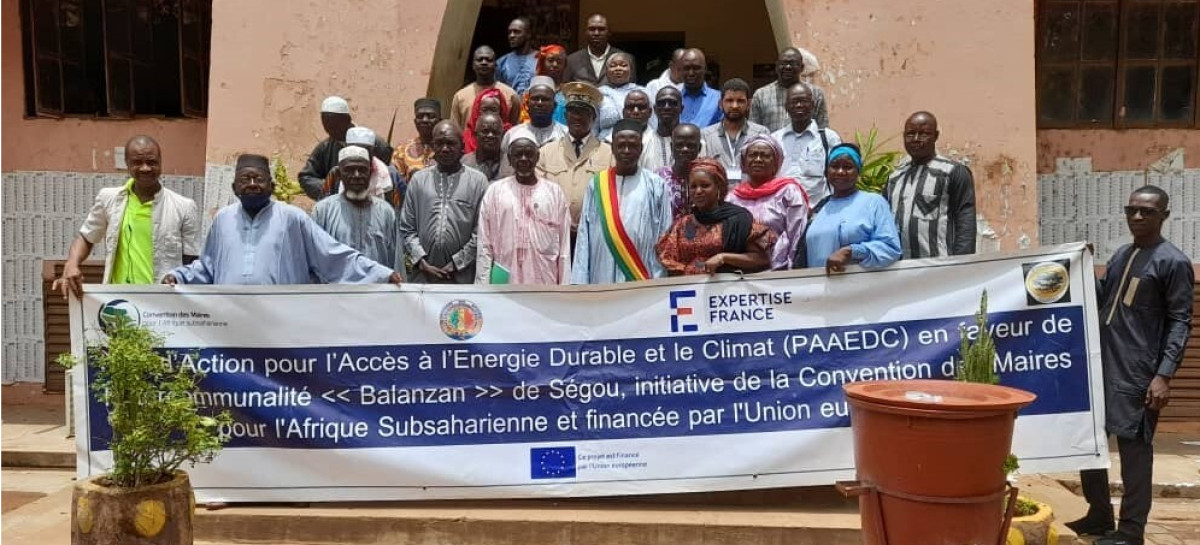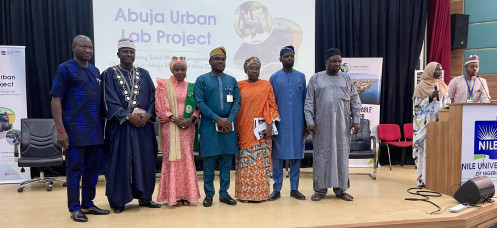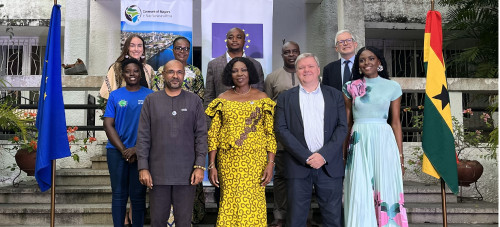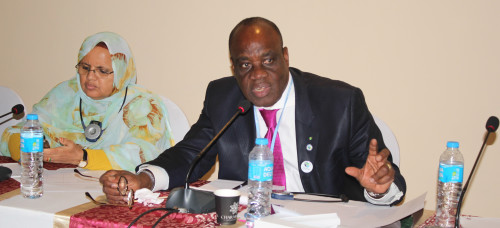Ségou and its neighbouring towns organise their response to climate change amid high vulnerability
Published: 13 Sep 2022
Adaptation
General
Success Stories

Located in the Sahel – a region particularly vulnerable to the effects of climate change – the cities of Ségou, Pelengana, Sakoiba and Sébougou have worked together in the past two years to draw up Mali’s first intercommunal Sustainable Energy Access and Climate Action Plan (SEACAP). Comprehensive and ambitious, this SEACAP was adopted on 29 July 2022, with the vision: "A healthy, green, resilient intercommunality for harmonious and sustainable development".
The complex political and security context facing the intermunicipality didn’t prevent public consultation meetings that facilitated the dissemination of the results from the baseline studies. These meetings were key to mobilising the population around the climate-energy issues and to finding out their concerns and ambitions, in order to co-develop responses to the climate and energy challenges in this territory.
In line with the results from the baseline studies showing the climate risks to people's livelihoods, the action plan focuses on climate change adaptation actions which account for more than 80% of the budget.
Irregular rainfall, rising temperatures and the increased frequency of extreme climatic events such as droughts, floods and violent winds, particularly threaten the socio-economic life of the towns. These events have a negative impact on agriculture, livestock, forestry and water. The adaptive capacities of the populations are weak and therefore result in a decline in income, especially for women, as well as a deterioration in living conditions, food and nutritional insecurity, and exodus and migration.
In order to overcome these challenges, strengthening techniques for adapting agriculture to climate change and the preservation of forest and water resources are top priorities. Among the key actions of the SEACAP, is an ambitious policy of annual reforestation of 1,000 trees in the classified forests of Faira and Fanzana. As well as targeted actions to strengthen the resilience of the most vulnerable groups, particularly women, through the construction of eight modern irrigation systems for women-led market gardening cooperatives in the inter-municipality.
The pillars of mitigation and access to sustainable energy also remain at the heart of the SEACAP. The city of Ségou will be equipped with a solar public lighting system estimated at €250,000, in order to rationalise the management of the municipality's public lighting. Another key priority is to work on structuring the clean and affordable cooking sector in order to promote good practices in this area.
In order to start the process of turning this climate-energy strategy into a reality, several pilot projects are underway in the towns. These projects are also intended to demonstrate the capacity for action of the four towns of the inter-municipality.
Just a few days after the adoption of the inter-municipal climate-energy plan, representatives from three of the inter-communal laid the foundation stone for a public latrine construction project in Sébougou. As part of the territorial adaptation strategy, this project will make it possible to better preserve fragile water resources, particularly by combating the contamination of groundwater and the Niger River. It should also be able to serve as a base, in the future, for projects to treat and recover sludge to produce compost or biogas.

Modibo Traoré, Mayor of Sébougou, Diabaté Mariam Bamba, Mayor of Pelengana, Soungalo Cissouma,
Director General of the ADR of Ségou, Nohoun Diarra, President of the Intermunicipality Balanzan, and the village chief of Sébougou.
The inter-communal of Balanzan was supported in this process by the Regional Development Agency of Ségou, which piloted the project, the technical assistance of the Malian consulting firm, Jiri Services, and the support of the Covenant of Mayors in Sub-Saharan Africa through its implementing partner Expertise France, with funding from the European Union.





